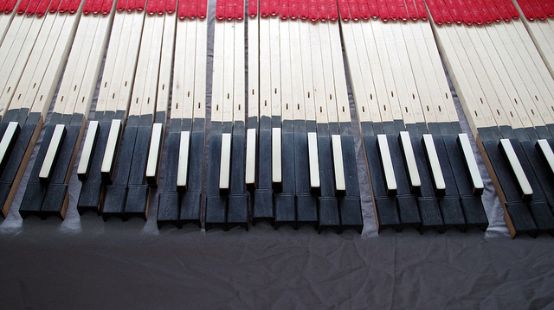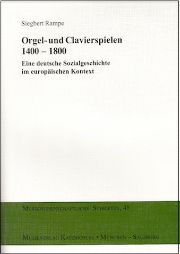Social history of keyboard playing
The profession of organist, harpsichordist, clavichord player or pianist from 1400 to 1800.

Reflecting on the profession of church musician or organist is a worthwhile task, and not only in our time. In this interesting book, Siegbert Rampe, a highly productive musicologist, editor and musician, looks at the sociological background to around 400 years of music-making for keyboard instruments. On the one hand, he examines the situation of professional musicians with regard to their income (including additional income, for example by making scores available as copies for other musicians), but also with regard to their duties in the church, at court and in the community, their training, the instruments available to them and their access to music materials. He argues that "keyboard music" (which of course, according to the usage of the time, also included organ music) at this time served primarily didactic purposes in the training of budding musicians - in other words, to a certain extent as a "model" for improvisation and composition or for the private music-making of amateurs who were not able to create anything comparable in terms of improvisation or composition. The second part of the book is dedicated to these "amateur musicians". An epilogue looks at the insights gained for the German-speaking world in an international context and points out similarities and differences, for example in terms of denomination, the nationally predominant instrumentation (in France and Italy the clear dominance of the harpsichord, in Germany the clavichord) or the fact that the percentage of piano-playing "enthusiasts" has direct consequences for the publication of printed editions.
Rampe backs up his theories with a wealth of quotations and references (the bibliography comprises 26 pages of primary and secondary sources as well as editions of sheet music). Conclusion: a worthwhile read with a wealth of information that certainly contributes, as the author intended, to a better understanding of the music of the time and to an approach to the living and working conditions of its creators.
Siegbert Rampe: Orgel- und Clavierspielen 1400-1800, Eine deutsche Sozialgeschichte im europäischen Kontext, (Musikwissenschaftliche Schriften 48), 353 p., € 39.80, Musikverlag Katzbichler, Munich/Salzburg 2014, ISBN 978-3-87397-148-6








